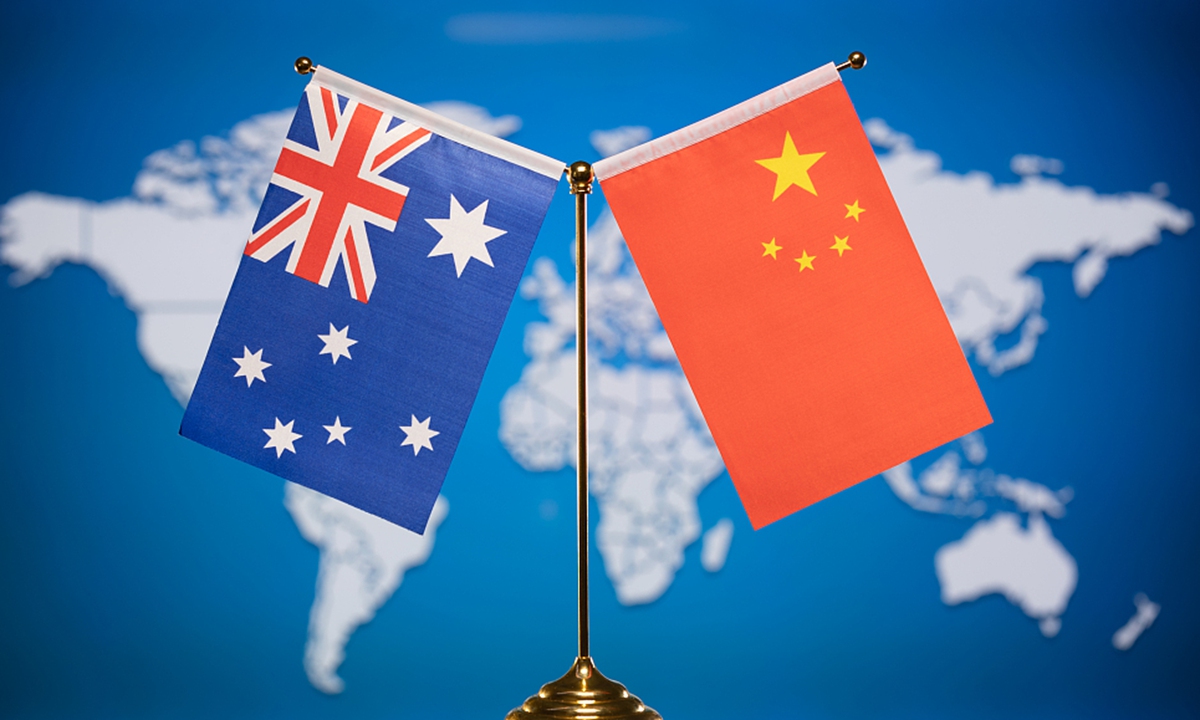
China-Australia Photo: VCG
Australian government's rejection of a bid by a Chinese company is akin to politicalizing trade and investment, dampening the momentum of bilateral pragmatic cooperation between the countries, and harming Australia's own image and reputation, the Chinese Foreign Ministry (FM) said on Tuesday.
The move violates market economy principles and the spirit of the China-Australia Free Trade Agreement, and is the latest example of discrimination against Chinese companies, FM Spokesperson Zhao Lijian told the regular briefing.
The remarks followed a nearly A$300 million ($231 million) acquisition bid for Australian contractor Probuild was rejected, after Australian Treasurer Josh Frydenberg said he would reject the China State Construction Engineering Corp's bid for the Australia-based and South African-owned company, citing national security concerns, the Australian Financial Review (AFR) reported on Tuesday.
The state-owned Chinese company withdrew its offer after Frydenberg declared the transaction a risk to national security.
Probuild executive chairman Simon Gray slammed the rejection, saying Probuild was less exposed to significant infrastructure work including rail, airports and tunnels than rival John Holland, which was acquired by China Communications Construction Co in 2015, the AFR report said.
Zhao emphasized that the nature of China-Australia investment and cooperation is win-win. "Any behavior to politicalize normal business cooperation and meddling under the guise of so-called national security is wrong."
China hoped that Australia would commit to the principles of open market economics and fair competition, creating a non-discriminatory environment for all foreign firms including Chinese ones.
The Probuild case is not the first intervention by Frydenberg. Chinese dairy giant Mengniu Dairy earlier planned to acquire some of Australia's biggest dairy brands, including Lion Dairy & Drinks and infant formula maker Bellamy's. The deals faced pressure from Frydenberg, who was granted last resort power to veto a deal.
Chinese investment in Australia is forecast to hit a new low in 2020 amid rising bilateral tensions. A report published by KPMG and the University of Sydney revealed that last year that Chinese investment in Australia in US dollar terms fell 62.2 percent to $2.4 billion.



